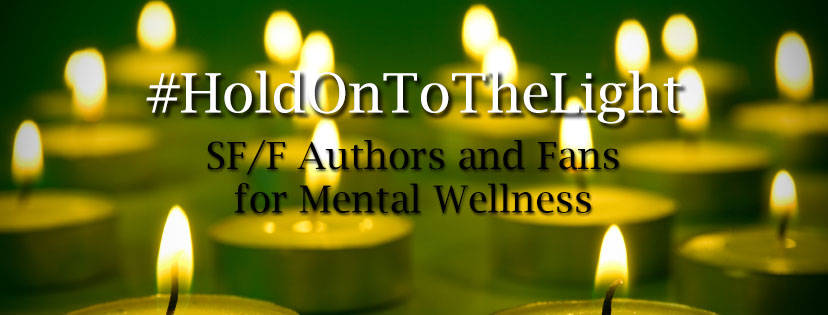
By Laurena Aker
(The Always Keep Fighting—AKF—campaign inspired the #HoldOnToTheLight campaign. Here’s the story behind AKF.)
In May of 2015, Jared Padalecki, one of the lead actors on the long-running television show Supernatural, tweeted the following message to his fans:
“I am in desperate and urgent need of my family. I am so sorry to tell you this but I must head home. I need all of the love I can get right now. Please please give me a few seconds of your time and write me.”
This public plea for help understandably alarmed Jared’s followers worldwide. Two years later in his courageous chapter in the book Family Don’t End With Blood, Jared admitted that he had hit rock bottom during a convention tour in Europe, and alone and exhausted, contemplated suicide just hours before writing that message. His chapter compassionately explains that once before when he had been crushed by feelings that “something” was wrong, he was diagnosed with clinical depression but despite naming the beast, he still didn’t fully comprehend the power his internal monster had over him. Motivated by his responsibilities and passionate work ethic, he pushed down or rationalized the desperation his mind, body and spirit were trying to communicate to him until it finally, unexpectedly overpowered him.
Jared’s confessions about his struggle with depression were not a surprise to his fans, affectionately referred to as the “Supernatural Family”. Early in 2015, Jared launched his first “Always Keep Fighting” fundraising campaign in response to losing a dear friend to suicide on New Year’s Eve. During the campaign, Jared revealed his personal fight with anxiety and despair. He encouraged people to reject the shame associated with mental illness and to seek help to “always keep fighting” against the ravages of self-doubt and depression. Jared’s messages hit home with the fandom. The #AKF campaign sold a record number of tee shirts and raised thousands of dollars for mental illness charities. Fans even bought #AKF merchandise for people who couldn’t afford to buy items for themselves. The resonance of the campaign stunned both the actor and the fans. Jared, a fan idol and the person who brought to life a character of strength and hope on his television show, admitted a personal vulnerability to his fans and was not only fighting with them but for them. Emboldened by his example and trusting the safety of the fandom space, people who had previously hidden or ignored their own confused or unidentified pain came forward on social media and websites, to their friends and to their families. Pleas for help were immediately met with an outpouring of love and practical, real-life assistance including support groups and personal outreach intervention. #AKF became a shorthand for defying being alone or ever being defeated, and providing the strength of compassionate understanding and comradery. It was emblazoned in tattoos, art, wristbands and tea lights. It was even immortalized on the side of a building in a Supernatural episode.
Seven more #AKF campaigns followed the first, each with a different message of self-awareness and mental health. The gravity of the underlying sentiments was always emphasized but the campaigns evoked fun, Supernatural themes to lighten the delivery. Over the next 18 months, subsequent campaigns added “Love Yourself First”, “I Am Enough” and “Family Always Has Your Back” to the mottos taken to heart by the Supernatural Family. In February, 2016, a parallel but related “You Are Not Alone” campaign was launched by Supernatural co-stars Jensen Ackles and Misha Collins to take their concern for the wellbeing of their fans one step further. Partnering with Misha’s charity Random Acts and two other charitable groups, the pair established the “SPNFamily Crisis Support Network”, an online army of trained volunteers who could intervene in moments of crisis and help fans cope with depression, self-injury or addiction.
“Always Keep Fighting” had started out as a fundraising t-shirt sale but it turned into an attitude engrained in the Supernatural Family’s identity. Obviously, the movement touched a massive, latent need for support of those affected by mental illnesses. The Supernatural fandom was an ideal place to launch this global dialog and microcosm of community empathy. The fandom already saw itself as a “family” based on the prevalent family themes within the show. Episodic adages such as “Have your back” and “Family don’t end with blood” reinforced this notion of family. The show’s multi-decade run also created stability, and a perceived importance and responsibility within its fandom relationships. Children grew into adults and adults passed through multiple life stages accompanied by the familiar characters of the show and the friendships and frameworks within the fandom. The actors’ and fans’ year-around interactions with each other at conventions contributed to the real life tangibility of these relationships. The show’s core lessons of hope, resilience and prevailing against insurmountable odds had also permeated the fandom’s psyche – all ideals that fed the #AKF mindset.
From people’s own admissions, the Always Keep Fighting movement saved countless lives. Websites and social media accounts such as Carry-On Supernatural and Supernatural Survivors; and charities such as Random Acts, To Write Love on Her Arms, and IMAlive continue to spread Jared’s, Jensen’s and Misha’s messages of hope and survival. Hopefully, #AKF’s beacon of light helps shatter the stigma of secrecy and shame surrounding mental illness.
Laurena Aker is an independent author and editor. Since 2014 she has been the Managing Editor for The Winchester Family Business, the largest review website for the TV show Supernatural. Her first book, Fan Phenomena: The Twilight Saga (2016) is a fun, informative combination of behind-the-scenes interviews and expert analysis of Twilight’s decade-long impact on literature, music, the entertainment industry and opportunities for women. Her Supernatural publications include a chapter in the best-selling book Family Don’t End With Blood, over 200 feature articles, weekly reviews for TV Fanatic, and the paper “Sparking and Sustaining Superfandoms: Similarities in The Twilight Saga and Supernatural Success Stories”. Prior to embarking on her writing career, Laurena was a Principal with Accenture, a leading global management and technology consulting firm.
The Winchester Family Business’ #AKF Related Articles: https://www.thewinchesterfamilybusiness.com/wfb-tags-list/always-keep-fighting
Supernaturalwiki history of AKF: http://www.supernaturalwiki.com/Always_Keep_Fighting
Supernaturalwiki history of YANA: http://www.supernaturalwiki.com/SPNFamily_Crisis_Support_Network
Family Don’t End with Blood: https://fangasmthebook.com/
#HoldOnToTheLight is a blog campaign encompassing blog posts by fantasy and science fiction authors around the world in an effort to raise awareness around treatment for depression, suicide prevention, domestic violence intervention, PTSD initiatives, bullying prevention and other mental health-related issues. We believe fandom should be supportive, welcoming and inclusive, in the long tradition of fandom taking care of its own. We encourage readers and fans to seek the help they or their loved ones need without shame or embarrassment.
Please consider donating to or volunteering for organizations dedicated to treatment and prevention such as: American Foundation for Suicide Prevention, Hope for the Warriors (PTSD), National Alliance on Mental Illness (NAMI), Canadian Mental Health Association, MIND (UK), SANE (UK), BeyondBlue (Australia), To Write Love On Her Arms (TWLOHA) and the National Suicide Prevention Hotline.
To find out more about #HoldOnToTheLight, find a list of participating authors and blog posts, or reach a media contact, go to http://www.HoldOnToTheLight.com and join us on Facebook https://www.facebook.com/WeHoldOnToTheLight

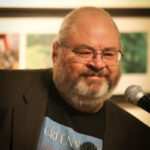 by Donald J. Bingle
by Donald J. Bingle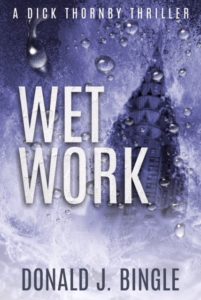 Don’t get me wrong. I don’t think Eric stole anything from anybody or anything like that. Ideas are not protectible by the copyright laws—only the manner of expression. Beside, there have been all sorts of good guys fighting monsters dating all the way to mythology and various time corps have been protecting the timeline across dozens and dozens of books. That’s how influence, inspiration, and expansion and revision of tropes work in literature (and, yes, genre fiction is literature). Eric deserves all the credit for putting out some excellent, well-written shows (though I’ve looked at his bio and noted he played rpgs in his younger days and, given his age vs mine, like to think that maybe at some time in the past, maybe at a convention like GenCon, he played a round of Chill I played, too, or maybe a Timemaster adventure I wrote back in the day).
Don’t get me wrong. I don’t think Eric stole anything from anybody or anything like that. Ideas are not protectible by the copyright laws—only the manner of expression. Beside, there have been all sorts of good guys fighting monsters dating all the way to mythology and various time corps have been protecting the timeline across dozens and dozens of books. That’s how influence, inspiration, and expansion and revision of tropes work in literature (and, yes, genre fiction is literature). Eric deserves all the credit for putting out some excellent, well-written shows (though I’ve looked at his bio and noted he played rpgs in his younger days and, given his age vs mine, like to think that maybe at some time in the past, maybe at a convention like GenCon, he played a round of Chill I played, too, or maybe a Timemaster adventure I wrote back in the day).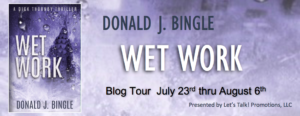
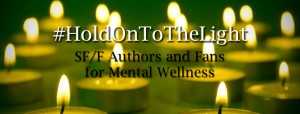
 About the author:
About the author: Make no mistake, depression is something people do battle with every day. Let’s be a part of their support, not a part of the problem.
Make no mistake, depression is something people do battle with every day. Let’s be a part of their support, not a part of the problem.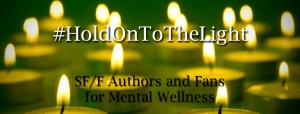
 I’ve recently returned to these early works. The rights to my first several series have reverted to me, leaving me free to do with them as I please. And I have chosen to reissue what I am calling the “Author’s Edits” (think Director’s Cut) of the books. For obvious reasons, I’ve started with my first series, the LonTobyn Chronicle, which I published back in the late 1990s. These books established me commercially and critically, and won me the Crawford Fantasy Award as the best new author in fantasy. They’re as close to my heart as any books I’ve written. But they were also my first efforts and they suffered from many of the flaws one finds in first novels. Hence the Author’s Edit. I haven’t changed any of the plotting, world building, or character work. But I’ve tightened the prose and eliminated unnecessary dialog tags, adverbs, and expository passages. The books now read better than they ever have.
I’ve recently returned to these early works. The rights to my first several series have reverted to me, leaving me free to do with them as I please. And I have chosen to reissue what I am calling the “Author’s Edits” (think Director’s Cut) of the books. For obvious reasons, I’ve started with my first series, the LonTobyn Chronicle, which I published back in the late 1990s. These books established me commercially and critically, and won me the Crawford Fantasy Award as the best new author in fantasy. They’re as close to my heart as any books I’ve written. But they were also my first efforts and they suffered from many of the flaws one finds in first novels. Hence the Author’s Edit. I haven’t changed any of the plotting, world building, or character work. But I’ve tightened the prose and eliminated unnecessary dialog tags, adverbs, and expository passages. The books now read better than they ever have.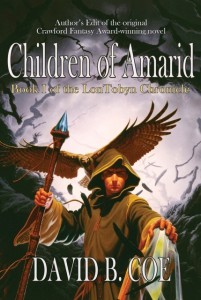
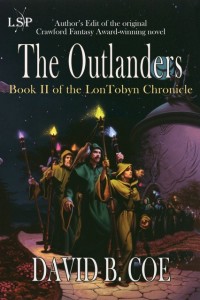 Now, I find that I’m ready to turn back. Reading and editing Children of Amarid, my very first novel, as I prepared for its re-release, I found myself transported back to those days when I was writing the book without a contract, dreaming of one day becoming a published author. I had read many of the great epic fantasists of my youth: Tolkien and Donaldson, Kurtz and Kerr, McCaffrey (yes, I know — she considered herself an author of Science Fiction; I thought of it as fantasy), LeGuin, Brooks, and Eddings. Those were the authors who attracted me to this career, and when I wrote the LonTobyn Chronicle, I tried to draw upon what I saw as the finest qualities of their work. I’m not so full of myself as to claim that I succeeded with this first effort. But they were my inspirations, and fantasy, as they defined the field, was my first love.
Now, I find that I’m ready to turn back. Reading and editing Children of Amarid, my very first novel, as I prepared for its re-release, I found myself transported back to those days when I was writing the book without a contract, dreaming of one day becoming a published author. I had read many of the great epic fantasists of my youth: Tolkien and Donaldson, Kurtz and Kerr, McCaffrey (yes, I know — she considered herself an author of Science Fiction; I thought of it as fantasy), LeGuin, Brooks, and Eddings. Those were the authors who attracted me to this career, and when I wrote the LonTobyn Chronicle, I tried to draw upon what I saw as the finest qualities of their work. I’m not so full of myself as to claim that I succeeded with this first effort. But they were my inspirations, and fantasy, as they defined the field, was my first love.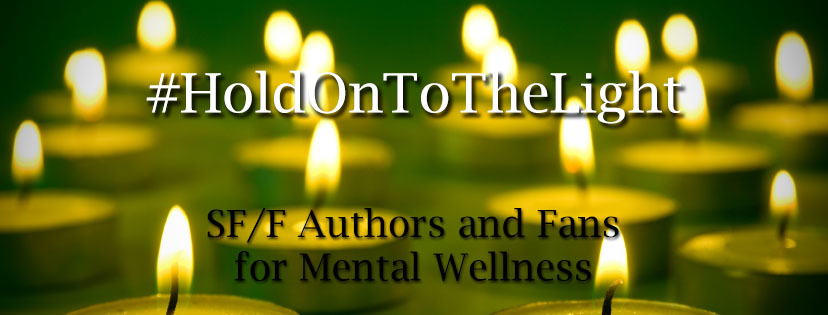
 Chris Kennedy is a bestselling Science Fiction/Fantasy author and speaker, a former naval aviator and elementary school principal. Chris’ stories include the “Occupied Seattle” military fiction duology, “The Theogony” and “Codex Regius” science fiction trilogies, and the “War for Dominance” fantasy trilogy.
Chris Kennedy is a bestselling Science Fiction/Fantasy author and speaker, a former naval aviator and elementary school principal. Chris’ stories include the “Occupied Seattle” military fiction duology, “The Theogony” and “Codex Regius” science fiction trilogies, and the “War for Dominance” fantasy trilogy.








